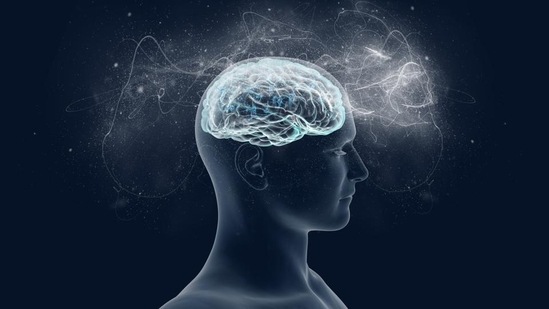
Mental health, like physical health, is given to us from birth. And in the course of life we can both strengthen and preserve it, and squander it. Below we will bring to your attention the main factors that can strengthen the psyche, and separately, which can have a destructive effect on the psyche.
Table of Contents
What improves mental health
Mental health, like physical health, is given to us from birth. And in the course of life we can both strengthen and preserve it, and squander it. Below we will bring to your attention the main factors that can strengthen the psyche, and separately, which can have a destructive effect on the psyche.
What improves mental health
Normal sleep-wake mode
Here are a few universal rules, following which you will strengthen your state of mind:
- Night sleep should last at least 7-8 hours.
- You need to fall asleep before midnight (ideally, the middle of sleep should fall on the interval of 0 – 2 am).
- Waking up not on an alarm clock, but at a time that the body itself determines (that is, awakening should be natural).
- If there is a desire to sleep at lunchtime, then you should give yourself this opportunity (it is unlikely that it will take more than 1 – 2 hours), and not fight it with coffee, tea, etc.
- Avoid sleeping between 5pm and 7pm.
Mental stress must be accompanied by physical
Regular muscle work allows you to normalize the balance of excitation and inhibition processes in the nervous system and has a beneficial effect on blood flow and the metabolism of neurotransmitters (dopamine, serotonin, norepinephrine, GABA, etc.) in the brain. If physical activity does not help you get rid of stress – try entertainment, for example, Blackjack online.
Since ancient times, it has been noticed that mentally ill people engaged in physical labor recovered faster in comparison with patients engaged in intellectual workloads. The most universal way to protect the psyche is regular physical education (at least 30 minutes 2 times a day).
Requires regular rest
Even if the work is in normal mode without overloads. It is enough to allow yourself to be disconnected from work (or study) for a few minutes per hour and have at least one day off from work per week.
Spiritual development
The concepts of good and evil, the definition for oneself of the meaning of life, the inevitability of death, questions of faith and much more that are attributed to the highest human moral categories, these questions sooner or later arise before every person. The evolution of each person in these important topics is an integral factor in strengthening the psyche.
Realization of physiological (healthy) needs
Communication, education and work, sex, family, satisfaction and other needs should not be ignored or perverted.
Don’t Avoid Stress
Contrary to misconceptions, stress is not a destructive factor for the psyche, but on the contrary, it has a strengthening and “tonifying effect” on the psyche. Long-term (chronic) stress is harmful.
Factors destroying mental health
These include all the opposites of what was written above: disturbed sleep patterns, lack of physical activity during intellectual work, deprivation of regular rest and avoidance of stress. Besides:
Substance use
Alcohol is a poison for the nervous system. Even a single use of “weak” alcohol causes damage to the nervous system equivalent to a concussion.
Smoking cigarettes – depletes the processes of excitation in the brain, since nicotine is a psychostimulant.
Information overload
Excessive receipt of new information first leads to overexcitation of the nervous system, accompanied by an increased need for information, and then to a breakdown of the nervous system.
Lies, loneliness
Unhealthy relationships, excessive attention (or complete inattention) to one’s health can also be attributed to phenomena that destroy the psyche.
Avoidance of medical examination
The presence of diseases of internal organs that are not identified and for which no treatment is prescribed.
No matter how trite it sounds, internal diseases (diabetes mellitus, hypertension, oncology, etc.) affect the functioning of the vessels and neurons of the brain. And the psyche, according to doctors, is one of the main functions of the brain.
Therefore, early detection of any disease (or predisposition to it) will prevent the impact on the brain and, accordingly, on the mental sphere.
Direct physical effect on brain tissue
Head injuries, strokes and brain infarctions lead to the destruction of neurons, and the psyche suffers accordingly.
What is needed to be psychologically healthy?
Accept yourself for who you are.
Lack of self-love is expressed as guilt, shame, and depression. Too often we live a fake life, trying to get recognition and approval from other people, forgetting about our desires. By accepting oneself one learns to accept others.
Learn to lose.
To successfully overcome adversity, you need to actively act within the limits of the situation that you can change, and come to terms with what you are not able to influence. The ability of a person to successfully cope with difficulties is the key to maintaining his psychological and physical health.
Learn to build and maintain relationships.
Emotional connection is very important, we need relationships that can serve as support and support in difficult times. Here are some tips for maintaining good relationships: learn to forgive, be lenient and honest, be yourself, moderately combine time spent in society and alone with yourself, take responsibility for your actions, act in accordance with the values, feelings and wishes of other people.
Help others.
We all face problems in our life. When we extend a helping hand to those who are in trouble, we not only become stronger than circumstances, but also experience a sense of our own importance.
Strive for freedom and self-determination.
For mental health, a certain degree of control over the decisions that can affect our lives is essential. If the environment controls us, punishes and suppresses, then our sense of our own freedom and significance is lost. Of course, we have to reckon with the desires and values of other people, but if we even slightly agree with them, then the feeling of our self-determination remains.
Set a goal and move towards it.
Psychological research has shown that the process of moving towards a goal is just as important as the goal itself. But sometimes the bar we set is too high, and we doom ourselves to deep disappointment. So make sure your goals are realistic. And if the goal is large, then divide it into several small ones.
Believe and hope.
In the hour of trials, when it seems to us that all the colors of the world have faded, hope and optimism and faith come to the rescue that sooner or later we will reach the goal we are moving towards. A positive outlook on the world helps to overcome fear and stay motivated.
Stay connected.
Try to feel your full involvement in what is happening, immersion in the current process or experience, focusing exclusively on them. There is a Buddhist saying: “If you think about rest while sweeping the floor, you do not perceive life as it really is. When sweeping the floor, sweep. Rest, rest.”
Enjoy the beautiful.
The ability to appreciate beauty is called the aesthetic sense. The ability to notice and understand beauty helps us to preserve all the amazing things that are in our world.
Don’t be afraid of change, be flexible.
The basic principle of judo is: follow the flow! Stubborn and unshakable, as a rule, receive a worthy rebuff. And those who try to hold their positions often waste all their strength. But if you have psychological flexibility and a willingness to change an ineffective behavior, then it is easier to adapt to a particular situation and cope with it more successfully.





